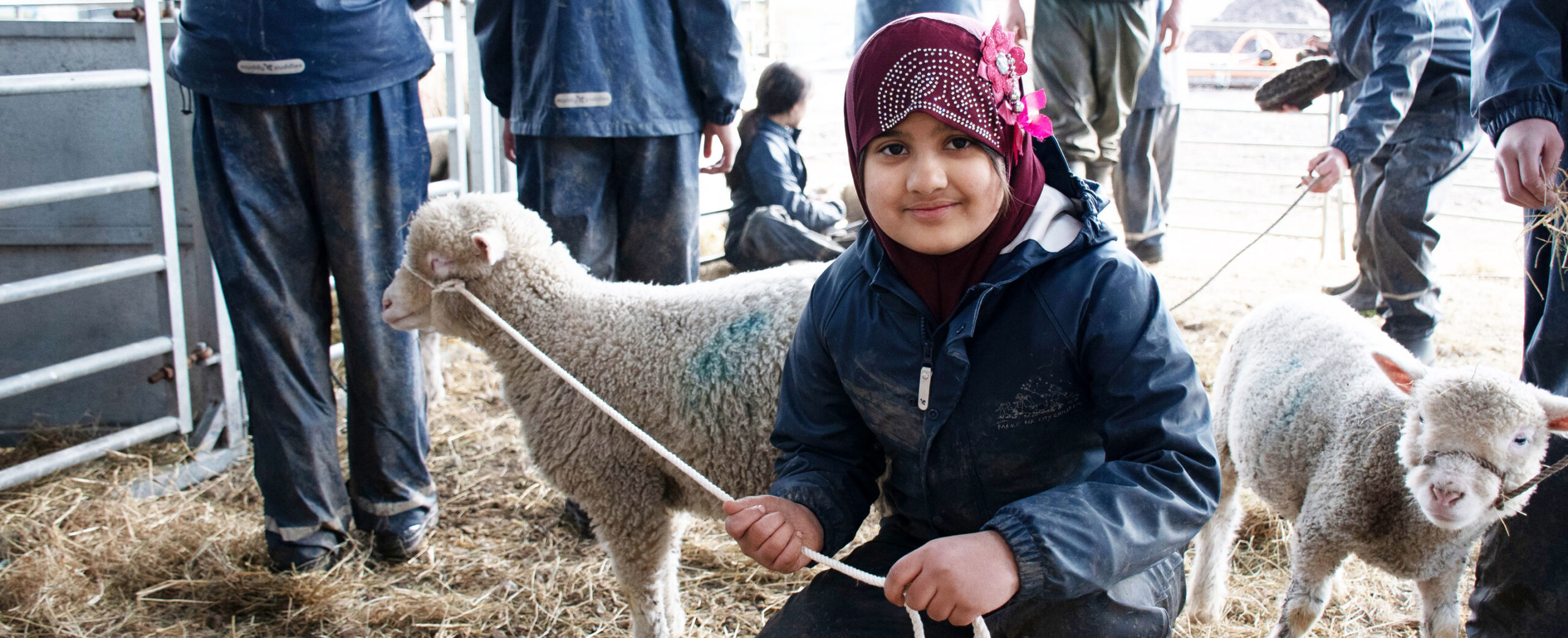Young people grow their confidence to express their feeling and opinions. They discover new ways to engage both with each other and the people in their wider lives.
Take home the benefits
of being farmers for a week
Our aim is to grow children and young people during their week’s residential on one of our farms.
To do this, we pledge to deliver three outcomes. Firstly, to increase children and young people’s learning and engagement. Secondly, to improve their wellbeing and connections with those around them. Thirdly, we pledge that young people leave us with an enhanced sense of environmental citizenship and the role they play in protecting our planet.
-
Enhanced physical activity.
-
Improved social interactions.
-
Reduced reliance on technology.
-
Increased awareness of nature.
-
Practical experience of farm to fork.
-
Enhanced noticing skills and empathy.
-
Improved grit and growth mindset.
-
Increased service and citizenship.
How we grow
young people
-
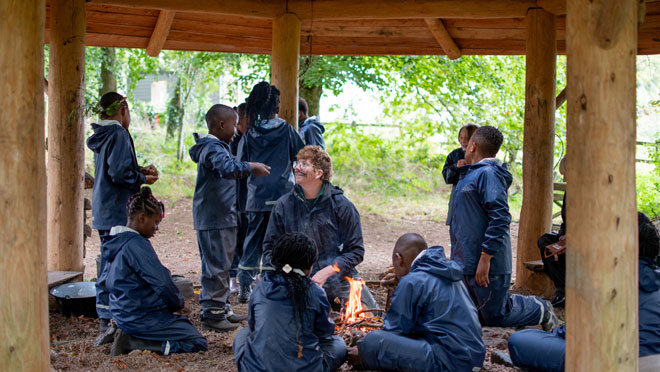 Communication
Communication -
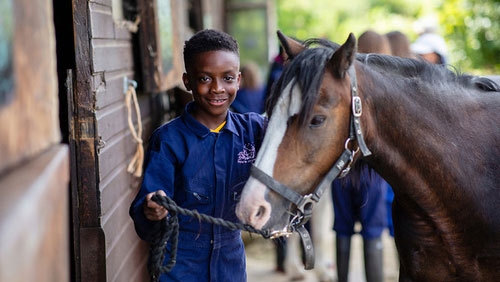 Confidence
ConfidenceIntroducing new experiences through group tasks boosts young people’s willingness to try something new, have their voice heard and share their learning with others.
-
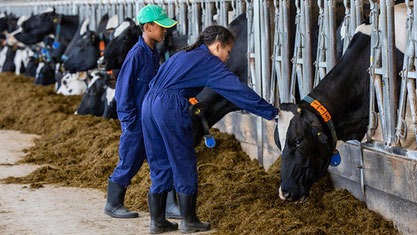 Compassion
CompassionImmersive experiences and practical learning grows young people’s empathy and compassion for nature, animals and the world around them.
-
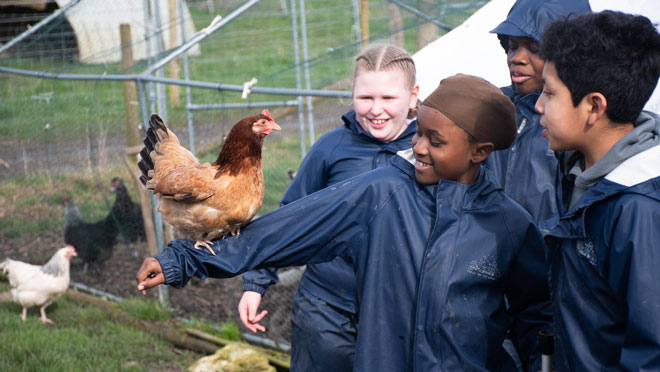 Courage
CourageYoung people learn the benefits of persevering when something is hard. They grow their willingness to step out of their comfort zones and know that there can be reward in doing so.
-
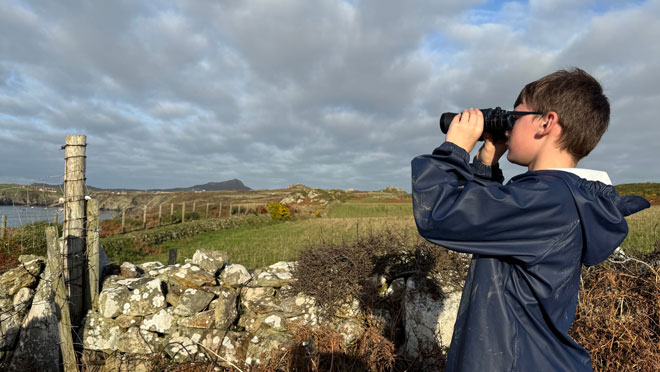 Curiosity
CuriosityTime in a new environment, learning different skills and connecting with nature encourages young people to want to know more about the world around them, broadening their horizons.
-
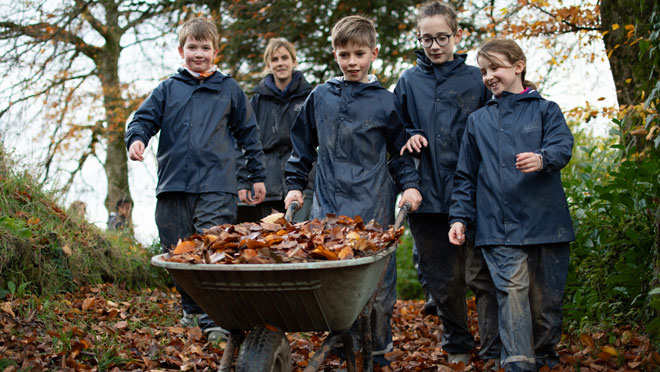 Connection
ConnectionConnections are built on multiple levels. Young people forge new relationships with peers and teachers at the same time as connecting with nature.
-
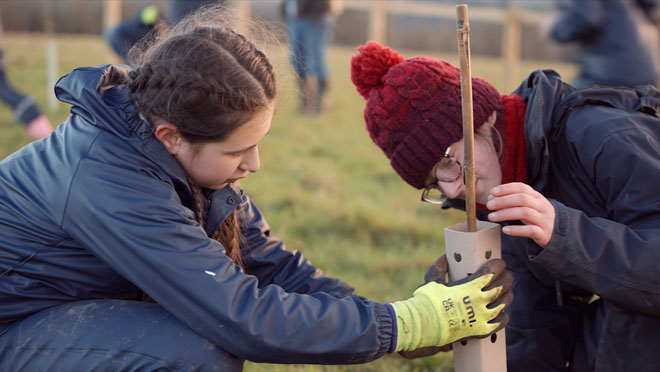 Conservation
ConservationFirst-hand experiences provide a tangible introduction to conservation and sustainability. Young people are more able to see themselves as custodians of the natural world.
-
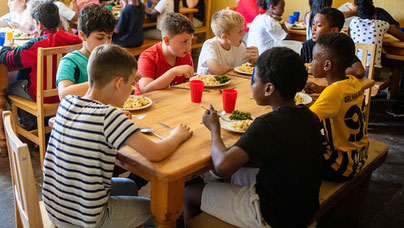 Community
CommunityYoung people grow their sense of community, understanding that humans, animals and the natural world are inter-connected and rely on one another.
-
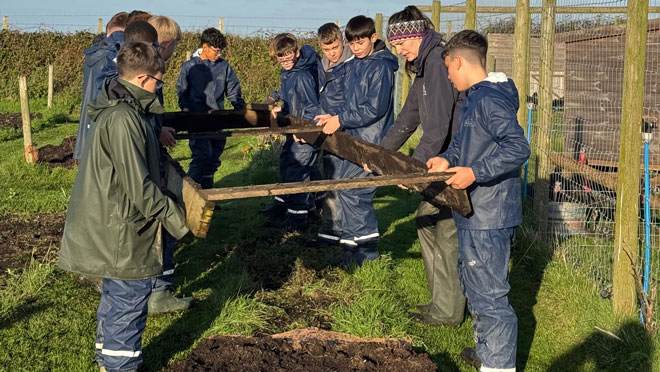 Collaboration
CollaborationThrough working together to problem solve and achieve, young people increase their ability and confidence to share knowledge, ask for help and support one another.
The children have learnt so much, so easily. They have been so keen to take part in everything that they haven’t realised how much they are learning.
It has been hard work but also really relaxing for them! The children have a greater understanding of how and why they should care for the environment and where their food comes from. An amazing week of fun, adventure and learning in such a brilliant environment.

Hermitage Primary School
Tower Hamlets
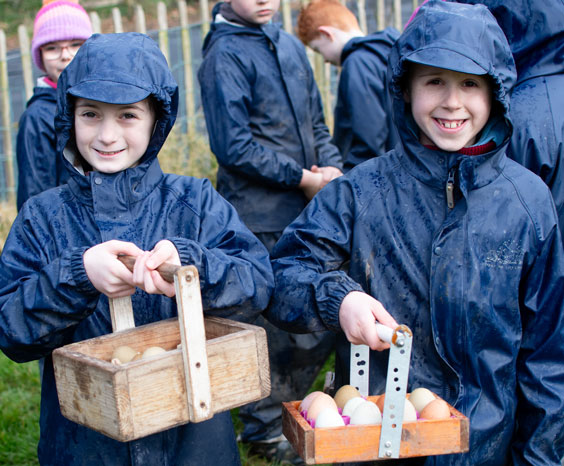
“Children found their voice. They excelled in areas we were not aware of.
They learnt to be more empathetic and to forgive each other and themselves when things do not go as planned. A week in paradise full of connection, reflection and growth.”
Hollymount Primary School
Merton
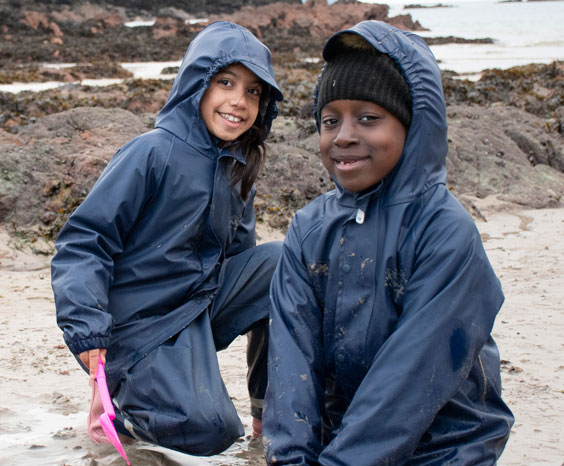
“Being outdoors makes me feel a bit more free and energetic.
I can feel all the fresh air outside, much more than I feel indoors. Also, I can see and smell all of the nature, which is really very beautiful.”
Year 6 pupil
Goodrich Community Primary, East Dulwich
Our impact
-
87%
of young people said they were more active on the farm than they usually are at home.
(2023/24) -
76%
of young people said they had a better ‘not giving up’ attitude than before their visit.
(2023/24) -
89%
of young people said they now know more about nature after their farm visit.
(2023/24) -
82%
of young people said they made new friends or got to know their friends better on their visit.
(2023/24)


